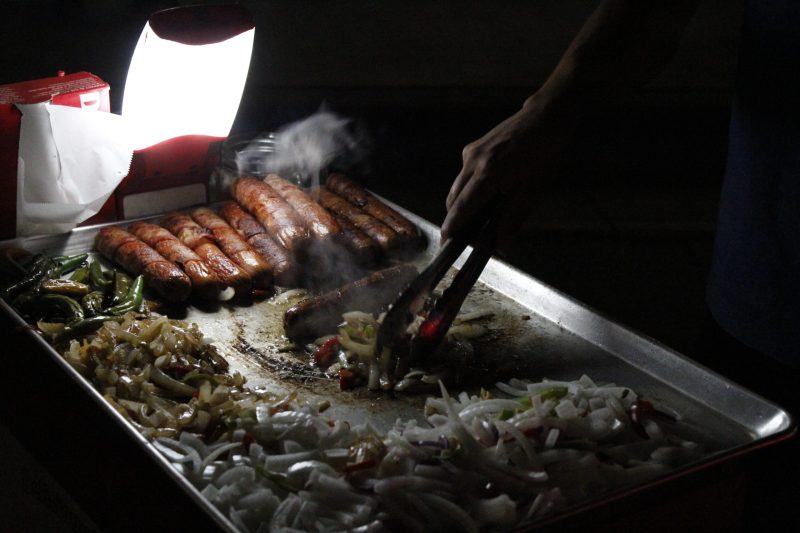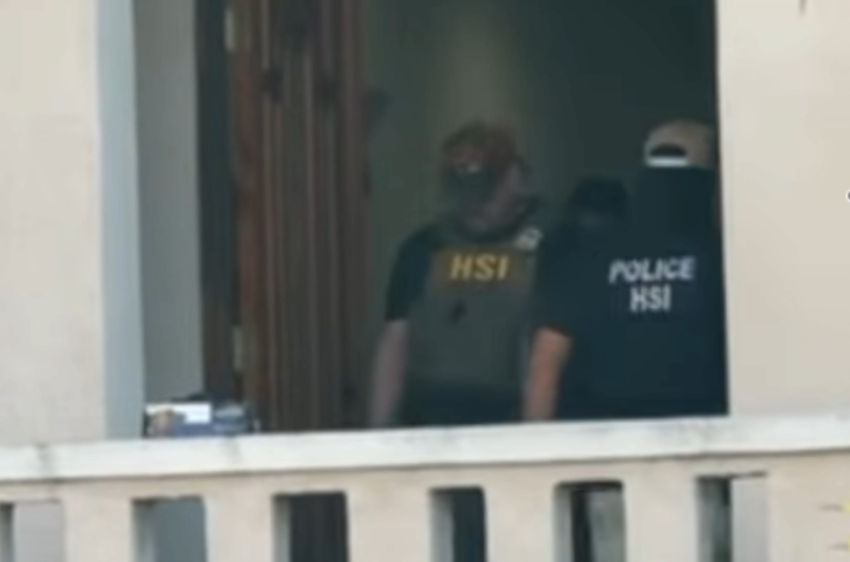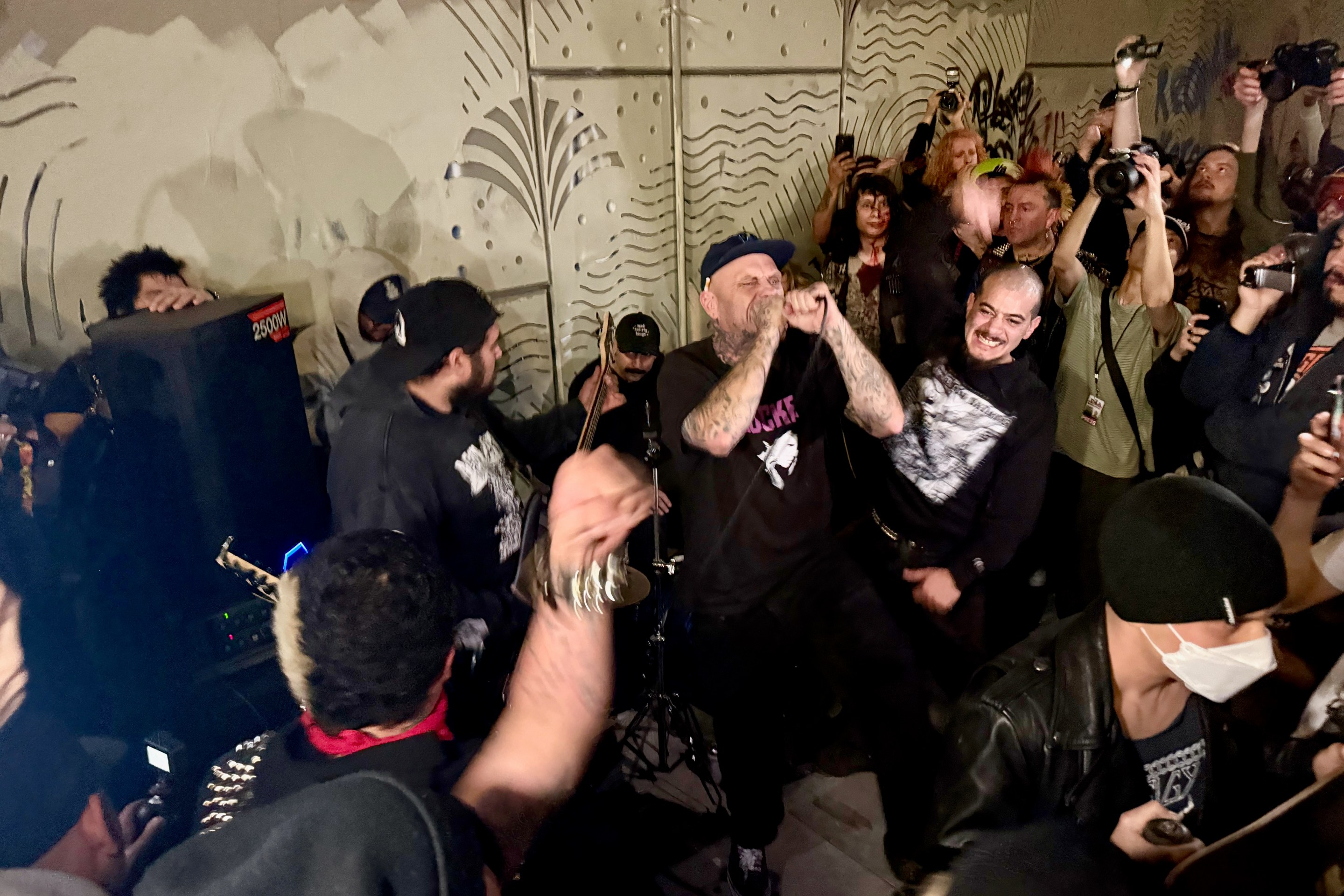[dropcap size=big]H[/dropcap]ours after 19-year-old Reginald James was reportedly shot and killed near a taco truck on 8th Street in DTLA on February 26, Los Angeles Police Sergeant Michael Flanagan reached out to members of several DTLA BIDs (“business improvement districts”) with a request: “If you can, have your security team take note of the food trucks in your area and send it to me.” Sgt. Flanagan requested information on where the vendors set up and what kind of food they serve, according to emails obtained through the California Public Records Act, by citizen journalist Adrian Riskin. “Since most of these trucks do not have names, getting a name will not be necessary,” Sgt. Flanagan wrote on Feb 26.
Five days later Ellen Riotto, Executive Director at the South Park Business Improvement District, sent Sgt. Flanagan a list that included the addresses and some of the names of more than 15 street vendors in the South Park area of DTLA. More than a quarter of the vendors on the list reportedly sold “Mexican food.” Hot dog, fruit, and Philly cheesesteak vendors were also included. “Hi Sgt., see attached and let us know if you need anything else,” Riotto wrote in response to Sgt. Flanagan on March 3.
“One of these food trucks is an old client of mine from over 10 years ago,” tweeted Rudy Espinoza, Executive Director of Inclusive Action, a community non-profit that works with street vendors. After seeing the emails, Espinoza was upset that the hardworking street vendor was connected to a crime he had absolutely nothing to do with.
“It’s shocking...” he tweeted.
According to Sgt. Flanagan, the request came from a commanding officer with LAPD Central Bureau. “I’ve been tasked to contact the State Franchise Board and the LA County Department of Health to formulate a task force in the near future,” Sgt. Flanagan wrote on February 26. “Both these entities usually work during the day, so coming out at night when the food trucks come out will be with special approval from both entities.”
Sgt. Flanagan encouraged Riotto to “snap a photo from a far and enlarge it.”
The list of business names and addresses wasn’t enough though. “I hate to be a pain but I was wondering if your people can gather a little more information for me,” Sgt. Flanagan wrote in a March 15 email to Riotto, two weeks after she sent him the list of addresses. “The health Department and Tax Board want to run the vehicle license plates of food trucks through their database to see if there are any previous violations before they come out.”
Sgt. Flanagan encouraged Riotto to “snap a photo from a far and enlarge it.”
“This will not cause suspicion from the truck operators.”
Two days later, Sgt. Flanagan received an email from South Park BID Director of Operations, Victor Gonzalez. “Attached you will find the list of all the food trucks in SP with their license plates.” The list included the license plates of 15 vendors. One was left out because the vendors reportedly swap out trucks weekly.
“The email is heartbreaking because I know firsthand that some of the entrepreneurs listed are real people with real families who work hard to get ahead,” Espinoza tells L.A. TACO. “They are not criminals and they certainly would never want to be on a list of targets for the LAPD.”
“What does it say about us as a city if the most well-resourced department is focused not on making people safer, but in this case, proactively looking for ways to criminalize people in a pandemic? Our priorities are wrong...”
L.A. TACO reached out to the LAPD for comment and provided the following response.
“A homicide occurred in the Central Area of Los Angeles on February 25, 2021,within close proximity to a food vendor. There have been frequent community complaints regarding food vendors regarding the large crowds they draw, increased activities in the area and other complaints. Senior lead officers were asked to work closely with the community and the State Board of Equalization to identify those food trucks in the areas where there were increases in crime to ensure that they were compliant with the rules and laws. The Department is responsive to community complaints and will work to ensure that people are safe in all the places they gather.”
In the past year, street vendors in Los Angeles have been subject to an upward trend of physical assaults and thefts. Aside from this uptick, many street vendors looking to create work for themselves also face other regional challenges such as extortion by local gangs or violent confrontations with brick and mortar restaurants nearby. In downtown, now street vendors will also face the dangers of being officially profiled for crimes they had nothing to with by the police.
“What does it say about us as a city if the most well-resourced department is focused not on making people safer, but in this case, proactively looking for ways to criminalize people in a pandemic? Our priorities are wrong,” Espinoza says.







